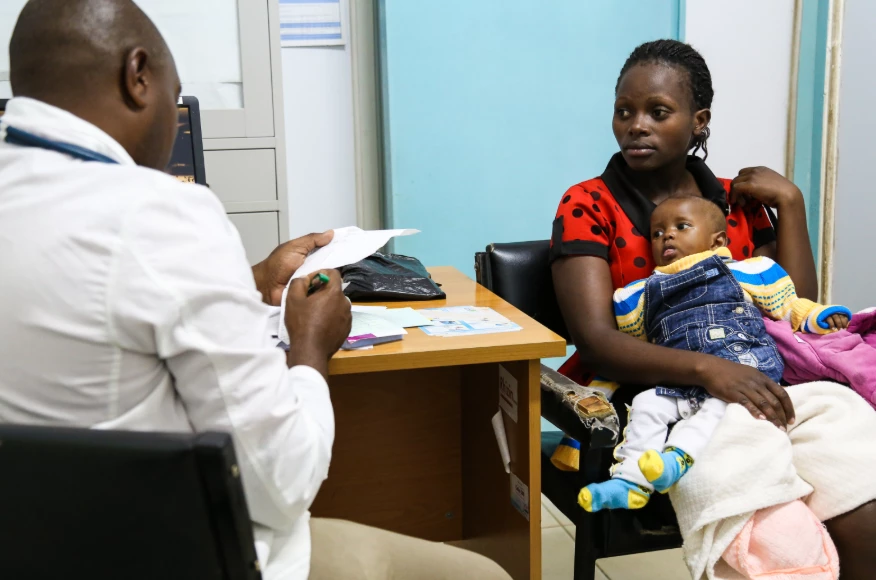 Ngozi UHC Financing
Ngozi UHC Financing
This blog is part of a series on Universal Health Coverage (UHC). The series includes contributions from external bloggers and reflects their view. Follow the conversation on Twitter #healthforall.
Universal Health Coverage is a fundamental part of the Sustainable Development Goals, but, despite what is implied by the name, UHC is not just about health – it is also about sustainable economic growth. That is why I was so pleased to see Ministers of Finance and Planning attending the Sustainable Financing for UHC session at this year’s World Bank Spring Meetings, because their role in making UHC a reality will be as critical as that of Health Ministers.
Having been a Minister of Finance myself, I understand the challenges that they often face on planning and on budget, in terms of balancing investments among competing priorities. That is why it so important to convince them to support Health Ministers by investing more in health and by doing what they can to make UHC a fundamental part of economic development.
As I have always said in many sessions, the dialogue between Ministers of Health and Ministers of Finance and Planning is not always a warm or cordial one, so we need to find out how to relate to one other. What is the language that Ministers of Health need to have in order to convince their Finance colleagues to pay attention to health among the competing priorities?
The first step is the investment case, to understand why UHC should be so important to all governments and why investing in it should be a priority. As Nelson Mandela once said: “Health cannot be a question of income; it is a fundamental human right.” But while this is true, it is important to remember that we should also invest in health because it makes for sound economics.
The fact is that at both the individual and societal levels, there are few investments that are as economically sound and transformational as investing in health. We know this is not just speculation; there have been many studies to back this up, which we now need to bring to the attention of the Ministers of Finance. Research has found that for every dollar invested in childhood immunization – an example I like to give because I’m chair of Gavi – we can expect to save $16 in healthcare costs, lost wages, and lost productivity due to illness. And if you consider the full value of people who are living longer, healthier lives, then the return on investment increases even further to $44. Where could you get a better rate of return than that?
In low-income countries and lower middle-income countries, health has been found to contribute to annual growth in income to the tune of about 1.10 percent annually. And in Sub-Saharan Africa, the contribution is even larger at about 5.7 percent.
In addition, investments in health also help to prevent both outbreaks of disease and the economic impacts that come with that. In 2014, the Ebola epidemic in West Africa was estimated to have knocked-off about $2.2 billion of the GDP of the three hardest hit countries: Sierra Leone, Liberia, and Guinea.
However, despite this huge opportunity, spending on health in low-income countries and low middle-income countries remains low. I’m particularly worried about the latter because they’re in a transition where they’re being taken off concessional financing – so there is a gap in their financing and one we really need to look at.
There are two further aspects of spending and health that are important. The first is efficiency. Finance Ministers need help from their Health colleagues to increase the efficiency of health spending because sometimes just spending more appropriately and efficiently can add resources before we even think of additional monies. One intervention to tackle these inefficiencies is to ensure that the most cost-effective interventions, or what we call the “best buys,” are the ones prioritized. Good examples of a best buys include: nutrition; health promotion to reduce NCDs; birth attendants, contraception and, again, childhood immunization.
Health enhancing sectors would also play an important role in this. I also make the case that Ministers of Finance don’t just see the amounts allocated to the health sector as the only health interventions because clean water could do even more for health of babies than direct intervention—so could infrastructure, or even electricity. When we look at investment in health, from the health perspective, we also need to take some of those into account.
The second point is that, in addition to all this, you have to increase the overall envelope of resources to improve taxation and domestic resource mobilization, something everyone is talking about right now.
I’ve been involved in the Task Force on Fiscal Policy for Health, which recently released their report, co-chaired by Larry Summers and Mayor Bloomberg. Our study showed that raising tobacco, alcohol, and sugary beverage taxes is very important and significant to improving health. We estimated that we can prevent 50 million premature deaths and raise $20 trillion of additional revenues over the next 50 years if countries implement taxes to raise prices of tobacco, alcohol, and sugary beverages by 50 percent. These are products that are harmful anyway—and we need the additional revenues for health – so it would be a win-win solution.
So, what can development partners do? The good news is that countries are not in this alone. An African proverb says “If you want to go quickly, go alone. If you want to go far, go together”.
International partners working with countries can ensure that, one, we spend efficiently what we have, and, two, we prioritize well. After doing this we then look at how to increase the additional resources for the health sector.
Initiatives like the World Bank Spring Meeting session I attended can help. The potential here is partly to help us look at these issues from the point of view of Ministers of Finance and develop the dialogue between the two sides that can make engagement most productive. The session a highly productive opportunity to begin that process, and we left with new call to action to try to put in place the kinds of measures that can help us move forwards and bring us closer to UHC.
Reflections by Dr. Ngozi Okonjo-Iweala, Chair of the Board Gavi, the Vaccine Alliance following her keynote speech at the 2019 World Bank Spring Meetings Session entitled Sustainable Financing for Universal Health Coverage: Aligning Around A Country-Led Vision on Saturday, April 13, 2019



Join the Conversation